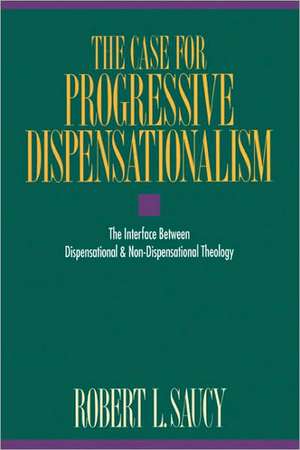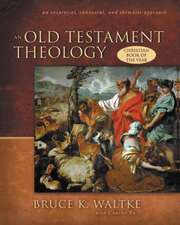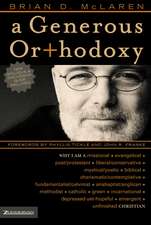The Case for Progressive Dispensationalism: The Interface Between Dispensational and Non-Dispensational Theology
Autor Robert Saucyen Limba Engleză Paperback – 30 aug 1993
Preț: 149.77 lei
Nou
Puncte Express: 225
Preț estimativ în valută:
28.67€ • 31.15$ • 24.10£
28.67€ • 31.15$ • 24.10£
Carte tipărită la comandă
Livrare economică 21 aprilie-05 mai
Preluare comenzi: 021 569.72.76
Specificații
ISBN-13: 9780310304418
ISBN-10: 0310304415
Pagini: 336
Dimensiuni: 152 x 229 x 22 mm
Greutate: 0.51 kg
Editura: Zondervan Academic
Colecția Zondervan Academic
Locul publicării:Grand Rapids, United States
ISBN-10: 0310304415
Pagini: 336
Dimensiuni: 152 x 229 x 22 mm
Greutate: 0.51 kg
Editura: Zondervan Academic
Colecția Zondervan Academic
Locul publicării:Grand Rapids, United States
Descriere
Debate
abounds
on
the
future
of
Israel
and
Israel's
relation
to
the
church,
not
only
between
dispensationalists
and
non-dispensationalists,
but
among
dispensationalists
themselves.
In
the
past
that
debate
has
sometimes
been
acrimonious,
and
proponents
of
the
differing
viewpoints
have
found
little
common
ground.
In
recent
years,
however,
views
have
been
modified
and
developed
so
that
the
dialogue
is
increasingly
by
cooperation
and
a
mutual
exploration
of
diverse
ideas.
The
Case
for
Progressive
Dispensationalism
is
intended
to
enlighten
the
debate
in
that
same
irenic
spirit.
The
book
is
solidly
dispensational
in
perspective
in
affirming
that
the
Old
Testament
prophecies
are
completely
fulfilled
in
the
future,
that
the
nation
of
Israel
has
a
prophetic
future,
and
that
Israel
is
not
the
church.
Dr.
Saucy
departs
from
classic
dispensationalism,
however,
in
showing
that
(1)
the
fulfillment
of
Old
Testament
prophecy
begins
in
the
present
church
age,
and
(2)
the
church
is
not
a
parenthesis
in
God's
program
but
represents
a
continuity
with
the
Old
Testament
messianic
program.
This
modified
dispensationalism
seeks
to
satisfy
many
of
the
objections
of
non-dispensational
approaches
to
eschatology
while
retaining
the
crucial
elements
of
biblical
interpretation
that
characterize
dispensational
thought.














